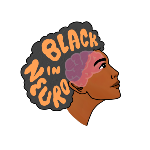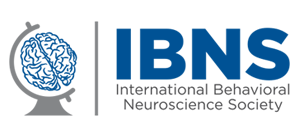2021 Annual Meeting Networking & Workshop EventsEthics & Diversity Committee Luncheon
In our current global context of a pandemic highlighting health disparities, racial reckoning and protests sparked by the murder of George Floyd, and the historic U.S. election of our first Black, Asian-American woman Vice President, the IBNS Ethics and Diversity Committee invites you to a luncheon to share in a discussion about unconscious bias. We will examine our unconscious biases and use a Case Study approach to think about how we might lean into equity and inclusion in our labs, departments, institutions, and workplaces. EDI Workshop will be held Wednesday June 2, 2021 12pm - 1:30pm CDT. https://www.ibnsconnect.org/d-e-i- Dr. S. Tiffany Donaldson graduated with a BA in Biology and Spanish with Honors from Dartmouth College, completed a Master’s at Harvard College in Psychology (Concentration in Psychopharmacology) and obtained her Ph.D. in Psychobiology (Concentration in Psychopharmacology) from Northeastern University in 1993. Dr. Donaldson joined IBNS in 2014 and served on the Program Planning Committee from 2016-2018. In addition to her activity on IBNS, Dr. Donaldson collaborates on a U54 NCI-funded partnership between the University of Massachusetts (UMAss) Boston and Dana-Farber/Harvard Cancer Center to share evidence-based intervention and prevention strategies for reducing cancer disparities among Black diasporic and Latinx populations in the Greater Boston Area. She is also PI on an R25 Grant from NICHD that delivers paid research opportunities for underrepresented groups in community-based participatory research, behavioral medicine, nursing, and psychological research (evolutionary psychology and behavioral neuroscience) focused on family, child, and community health. She is also a National Research Mentor Network (NRMN) Mentor Trainer who supports postdocs, faculty, and staff at UMass Boston in evidence-based mentoring practices for racial/ethnic minorities. Since joining the faculty at UMass Boston in 1997, she has mentored over 270 undergraduates and graduate students in her Behavioral Neuroscience lab, had an undergraduate co-author on every one of her publications, and served on Review Committees for Ford Fellowships, NSP Fellows, F31, T32, and Study Sections for NIH MARC and RISE grants. Dr. Donaldson’s research focuses on biology – environment interactions that influence vulnerability to anxiety- and depression-like behaviors and addiction in rats. She also uses a rodent model of hypoxia ischemia (HI) to promote maternal care-taking behavior to reverse neurological and behavioral sequelae associated with HI injury. In her downtime, she enjoys attending her kids’ orchestral concerts, knitting, reading historical and science fiction, and hiking. Awards/Recognition:
Black in Neuro (BiN) Black In Neuro is an international grassroots organization dedicated to the support and amplification of Black scholars in neuroscience-related fields. It is a trainee-led organization that began in July 2020 amidst the heightened awareness of the racial injustices faced around the world and the isolation many of us felt. We aim to diversify the neurosciences by sharing knowledge, offering resources, and building community at every stage of one's academic journey. Previous events we have hosted include neuroracism panels, film screenings, negotiation and interview skills workshops, and monthly socials. Last fall, we also organized an international virtual conference that allowed Black trainees to present their cutting-edge research, find potential labs for their next steps, and connect with attendees from over 60 different countries. We are constantly developing new programs and offering various resources to make neuroscience more equitable for everyone to thrive. At BlackInNeuro.com you can find upcoming events, a multitude of resources for trainees, and over 500 profiles of Black scholars who are available for mentorship and speaking engagements. Black In Neuro is an international grassroots organization dedicated to the support and amplification of Black scholars in neuroscience-related fields. It is a trainee-led organization that began in July 2020 amidst the heightened awareness of the racial injustices faced around the world and the isolation many of us felt. We aim to diversify the neurosciences by sharing knowledge, offering resources, and building community at every stage of one's academic journey. Previous events we have hosted include neuroracism panels, film screenings, negotiation and interview skills workshops, and monthly socials. Last fall, we also organized an international virtual conference that allowed Black trainees to present their cutting-edge research, find potential labs for their next steps, and connect with attendees from over 60 different countries. We are constantly developing new programs and offering various resources to make neuroscience more equitable for everyone to thrive. At BlackInNeuro.com you can find upcoming events, a multitude of resources for trainees, and over 500 profiles of Black scholars who are available for mentorship and speaking engagements.In collaboration with IBNS, Black In Neuro is hosting a social on Wednesday, June 2, 2021 at 6pm CDT. This will be a fun opportunity for Black scholars to be exposed to the IBNS network and for everyone to make new friends. This event is open to EVERYONE (Black scholars, non-Black allies, people at various career stages, those not registered for the conference, etc) so come ready to have a good time and meet some amazing new people! https://www.blackinneuro.com
Women in Learning (WIL)
At IBNS 2021, we are excited to host and invite you to a virtual panelist discussion and happy hour on Thursday, June 3 at 6pm CDT (Puerto Vallarta time). We have recruited the IBNS keynote speakers (all women!) to serve as our panelists. Drs. Marina Picciotto, Tracey Shors, Gina Quirarte, and Kay Tye will share their career trajectories, experiences, and advice and answer any and all questions you have about being a woman in science. We plan to take questions both in advance and live, so start thinking about your questions and please plan to join us in June. In the meantime, check out our website for more information on WIL: www.womeninlearning.com. WIL would also like to announce the first-ever WIL-IBNS Outstanding Graduate Women in Learning Award! To mark this special event, with the help of IBNS, WIL is offering to support two women graduate students who have submitted to present at the conference with the Outstanding Graduate Woman in Learning Award. The award will recognize outstanding work in and commitment to the study of learning, behavior, and memory and will be cover the cost of registration to support both awardees’ attendance at the full IBNS meeting (June 1-5, 2021). Applying is easy – just send a current CV and a copy of your submitted IBNS abstract to [email protected] no later than Saturday, May 1. Send in your applications and mark your calendars – we can’t wait to see you there! Workshop: Animal models in behavioral neuroscience: Panelists & Discussion w/ Q&AAnimal models are an essential aspect of behavioral neuroscience research that enable scientists to systematically disentangle cause-effect relations between subject factors that often confound experimental studies of humans (e.g., frequency and duration of drug/alcohol abuse or therapeutic drug treatment, trauma &/or frequent aversive life events) and behavior. Animal models also provide a tool for studying the cellular and molecular bases of normal and abnormal brain function that are difficult, if not impossible, to probe in an experimentally-controlled fashion in humans. Despite this, concerns exist regarding the application of animal models for the study of the human condition that affect the perception of animal models as valid tools for neuroscience research, which in turn impacts the ability of behavioral neuroscientists to advance our scientific understanding of normal and abnormal brain function. To address this important concern, IBNS will be hosting a panel and discussion updating membership on current animal models in the study of behavioral neuroscience. Dr. Jill McGaughy (University of New Hampshire) will moderate the workshop and provide a brief overview of the goals, validity and limitations of an animal model. This will be followed by a series of esteemed panelists who will share their experiences developing and employing animal models for the study of normal and abnormal behavior. Dr. Jared Young (University of California San Diego) will discuss modeling attentional and cognitive processes in rodents. Dr. Erica Glasper (University of Maryland) will then present her work modeling social interactions and parental care in a strain of wild mice. Dr. Debra Bangasser (Temple University) will discuss how stressors can be applied to mice to understand how acute and chronic stress affects brain and behavior. Then, Dr. Nii Addy will share his experiences modeling aspects of addiction and related behavior in rats. The panelist presentations will be followed by a Q and A session and open discussion with the membership regarding the appropriate application of current animal models in behavioural neuroscience research and the steps that behavioural neuroscientists can take when advocating for, and advancing, the use of animal models in a research setting. Friday, June 4 at 6pm CDT More details coming soon!Meet the Committees |

 Featuring Dr. S. Tiffany Donaldson
Featuring Dr. S. Tiffany Donaldson  Women in Learning (WIL) is delighted to host our first-ever IBNS event at the annual meeting in June! WIL is a group of young scientists – mostly graduate students and postdocs – who share a common goal: promoting women in science. WIL was started by Dr. Moriel Zelikowsky in 2011 as an offshoot of the Pavlovian Society. For years, the group organized a simple luncheon at the Pavlovian Society meeting to provide a forum for young scientists to find support, advice, and guidance as they moved through their careers. As the group has expanded, we have developed new opportunities to support women in science, including our annual “WIL Outstanding Woman in Learning” award, our ongoing “Women to Watch” virtual research seminar, our 2020 Coronavirus Relief Fund, and our recent “Where there’s a WIL, there’s a way” research grant. We are proud of the work we have done to support women in science, and we’re really looking forward to introducing ourselves to the IBNS community!
Women in Learning (WIL) is delighted to host our first-ever IBNS event at the annual meeting in June! WIL is a group of young scientists – mostly graduate students and postdocs – who share a common goal: promoting women in science. WIL was started by Dr. Moriel Zelikowsky in 2011 as an offshoot of the Pavlovian Society. For years, the group organized a simple luncheon at the Pavlovian Society meeting to provide a forum for young scientists to find support, advice, and guidance as they moved through their careers. As the group has expanded, we have developed new opportunities to support women in science, including our annual “WIL Outstanding Woman in Learning” award, our ongoing “Women to Watch” virtual research seminar, our 2020 Coronavirus Relief Fund, and our recent “Where there’s a WIL, there’s a way” research grant. We are proud of the work we have done to support women in science, and we’re really looking forward to introducing ourselves to the IBNS community!